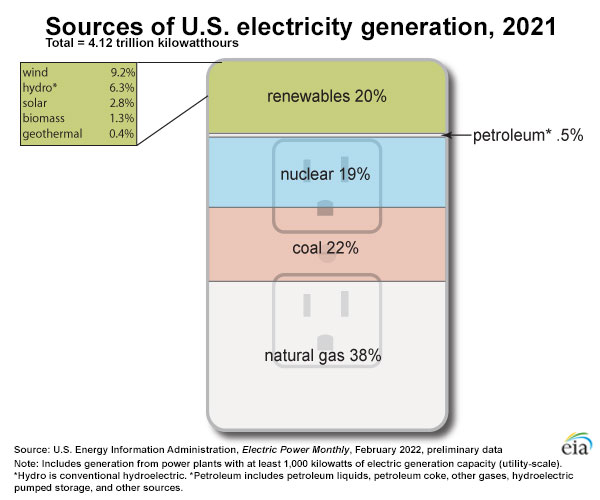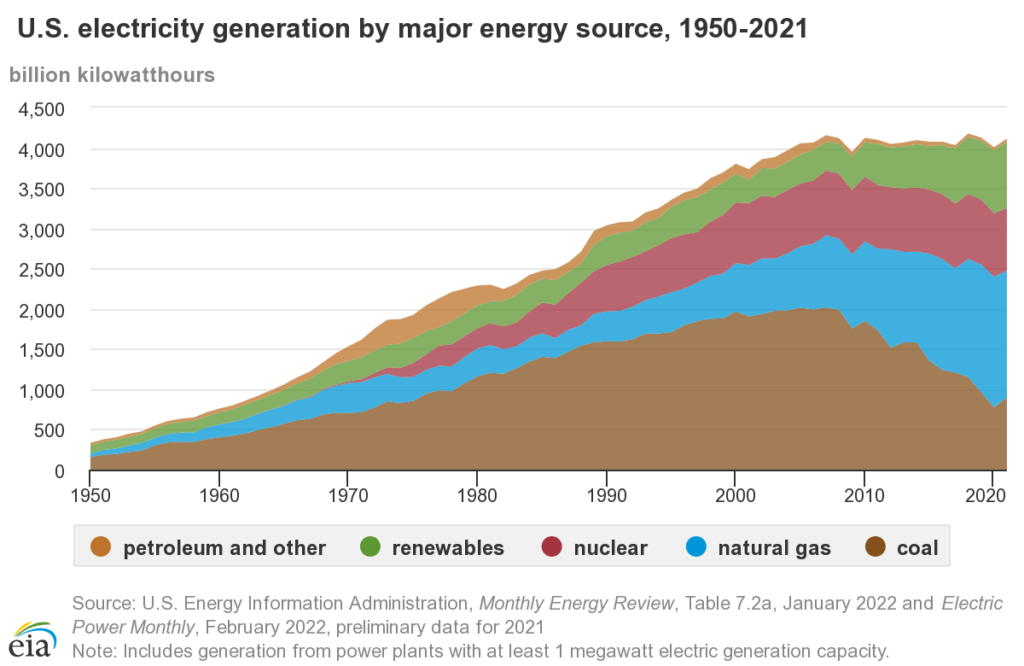June 17, 2022
Are Electrical Vehicles Truly Sustainable?
The short answer is NO. The batteries on the Electric Vehicles (EVs) do not generate electricity, they only store the electricity which is produced in other places. The production of electric cars generates less green house gas emission than the regular combustion engine cars. However, the electricity needed to charge the battery of EVs comes from different sources including coal, natural gas, nuclear energy, petroleum, and renewables such as wind, hydropower, solar, biomass, and geothermal.
Figure below shows the sources of US electricity generation for 2021. As seen, fossil fuels (coal and natural gas) are still responsible for around 60% of the total electricity generated. This ratio is even higher in some countries such as China where coal-burning power plants are a major source of electricity.

Figure below shows the proportion of different sources for electricity during the past 70 years. Coal had been the major contributor until it was surpassed by natural gas within the last decade. The other major development in the energy sector has been the increasing trend of electricity produced from renewable sources. This is an interesting fact that signifies the needs for more emphasis and investment on this sector.

It is obvious that electrical vehicles are not completely green at least until we still burn fossil fuels to charge them. The production of EVs is not also green. These cars need rare earth elements and battery grade lithium which should be mined and processed from natural resources.
It would be almost impossible to manufacture cars with zero emission. However, with the advancement in the technology in all areas of manufacturing and energy sectors, there are hopes that the emission from automotive industries will be declining during the next couple of decades.
What do you think? Are we moving towards the right directions or do we only change the question/problem and not really address the issue? Please start the discussion by leaving comments.